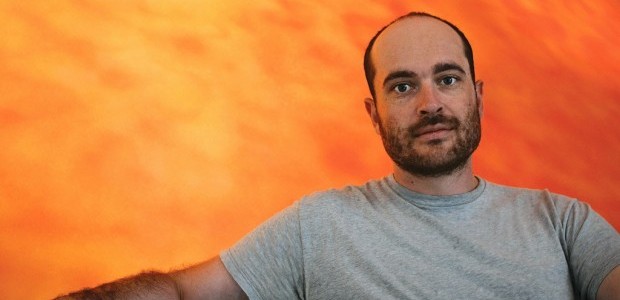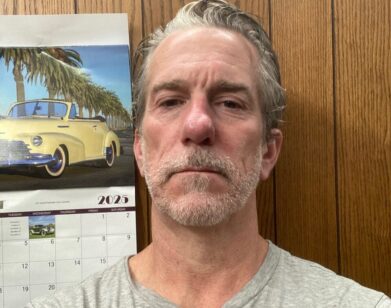Patrick Somerville Does the Twist

Life is unsolvable—perhaps that’s why people are fascinated with puzzles, as both allegory and entertainment. In Patrick Somerville’s brilliantly twisting novel This Bright River (Reagan Arthur Books), the past presents beautiful, haunting, sometimes terrifying glimpses into the present and future—if only the characters can untangle its mysteries. Ben Hanson and Lauren Sheehan have returned separately to the small Wisconsin town in which they grew up, driven home by histories of violence and abuse. Thrown together in their solitude and sparked by what could be love, Ben and Lauren begin to explore each other—and also the reasons that have pulled them back to Wisconsin: Lauren’s medical career in Africa, cut short; the deaths of Ben’s uncle and, many years earlier, his uncle’s son. As Ben and Lauren unearth the past, it begins to uncannily force itself on their present. Somerville writes with caustic, clever, and gorgeous detail of memory and landscape, family, and how our personal histories come to define us whether we want them to or not. We spoke with Somerville (twice) about puzzles, secrets, victims, and the price of revenge.
ROYAL YOUNG: How do puzzles illuminate our lives?
PATRICK SOMERVILLE: On the one hand, puzzles are great because they’re fun. But really we are drawn to puzzles because they can be solved.
YOUNG: Whereas life can’t.
SOMERVILLE: Yeah, and I don’t think it’s even a good thing to approach life in that way. We love the idea of being able to put a puzzle together and it being complete: you do it perfectly, step away, and you’ve completed the job. There’s a deep satisfaction from that, and I think we wish for the ability to do that with everything. But emotions just don’t work that way, people don’t work that way, relationships don’t work that way.
YOUNG: Well, I think some people work that way, but then nobody around them does.
SOMERVILLE: [laughs] And then they just don’t have any friends? Or they better find each other. But stuff always slips through, you know? Secrets, mood changes, the mysterious, the unexpected.
YOUNG: Do you think secrets rot us?
SOMERVILLE: Yes. I really think you cannot ever escape your history, what you’ve done, who you are, and things you’ve tried to hide. Even if no one ever finds out the secret you’re trying to keep, the cost of that keeping has been so great, that it’s destroyed you anyway. In all my writing, there are people who desperately wish the past is not what it is.
YOUNG: Has there been a time in your life where you felt the past was something you were trying to push back down?
SOMERVILLE: I feel like I’ve been lucky that I’ve never been put in a situation where I had to keep a secret like that. But what is true of me—and has to be true of everyone who’s ever been in a family—is that our idealization of reality when we’re children always has to fall apart. It’s the narratives we didn’t know about that pop up and redraw reality. You have to be able to integrate secrets into who you are. My family does not look now like it does when I was a kid. There was divorce. There were family secrets. There was definitely a difference between what I thought was true and what was true.
YOUNG: I feel like in broken families, the secrets are revealed much earlier; you’re forced to deal with hard truths. Whereas in “whole families,” that’s drawn out.
SOMERVILLE: Maybe those are people who are just more talented at hiding.
YOUNG: Or the secrets connect them in a deeper way.
SOMERVILLE: Wayne is obsessed with this idea that it’s your duty to protect the people in your family. Lauren and Ben each idealize what the other has. Neither of them recognizes the problems with what the other has. Lauren definitely covets the idea of a strong, solid Midwestern family with a lot of people and functioning relationships. The protection inherent in that. She sees family as a kind of fortress; bad shit can’t get in.
YOUNG: That seems like a pretty dangerous idea.
SOMERVILLE: Right. The difference between a castle and a prison is not that much. Ben is drawn to Lauren because she is an individualist and tough.
YOUNG: I want to talk about victims. My dad loved true crime [books], so before I could read, I would flip to the glossy middle sections where all the photos were. I often wondered if the victims knew their lives were going to end the way they did. I didn’t understand the violence, so I thought there was something about those people that marked them. Is Lauren a victim, or is there something about her that attracts violence?
SOMERVILLE: Lauren is attracted to powerful men. Will is a powerful man, especially in the context of Africa. He’s a doctor doing all this quantifiable good, and that is something she hasn’t encountered in her life. She’s drawn to that because it means protection and safety, being taken care of, someone who can defeat the chaos around her. She’s vulnerable and blind in that way. Even though she kind of suspects his danger early on, she overlooks it.
YOUNG: I think you can tell when someone is a psychopath who can physically harm you.
SOMERVILLE: You mean you can tell when someone is dangerous?
YOUNG: I can. I like to think I can.
SOMERVILLE: You grew up in New York, too; every day on the street is about managing that.
YOUNG: [laughs] Not anymore.
SOMERVILLE: Lauren can’t. Or she kind of can, but her attraction to other qualities of the person blinds that instinct.
YOUNG: How does revenge drive us? What happens when we live our lives only for revenge?
SOMERVILLE: It’s never satisfying. It’s an attempt to change the past more than it is an attempt to make something right. It’s totally human and totally understandable, but in the process you miss life.
YOUNG: Is revenge ever good?
SOMERVILLE: Elegant revenge is great. The perfect revenge that lets people see who they actually are for a moment. That does some other kind of work.
THE BRIGHT RIVER IS OUT NOW.






